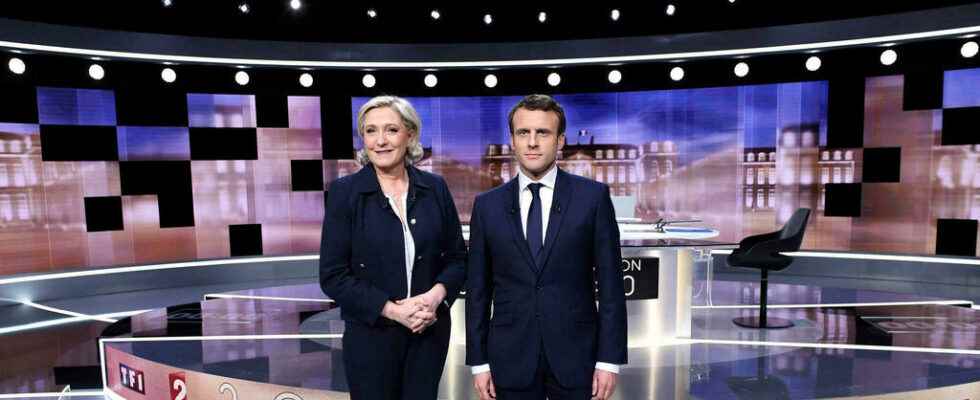The debate between the two rounds will take place on April 20 and will be moderated by Gilles Bouleau for TF1 and Léa Salamé for France 2, after the refusal by the two candidates of Anne-Sophie Lapix.
It is a French tradition as well as an American one. In the presidential election, the two finalists have a right veto on the journalists who will arbitrate their debate. This is of course the legacy of a time when television was the ORTF, therefore in the hands of the Head of State. For the first televised debate in 1974, Valéry Giscard d’Estaing was Minister of Economy and Finance and it was necessary to find journalists who suited him, him and of course his opponent, François Mitterrand. It was also necessary to settle a thousand details on the plans, the interventions of the journalists… Alain Duhamel and Michèle Cotta found themselves twice in this role having been dubbed by the two postulants, whether Giscard, Mitterrand, Chirac or Jospin.
In 2002, however, there was a kind of break with the arrival of Jean-Marie Le Pen in the second round. Jacques Chirac linked the question of the televised debate to that of a possible dialogue with the extreme right. ” Just as I have not accepted an alliance with the National Front in the past, nor will I accept a debate with its representative “, did he declare. No debate therefore until the tradition is taken up, with the same rules, by Nicolas Sarkozy, Ségolène Royal, François Hollande then Emmanuel Macron and Marine Le Pen.
The most important debate of the Fifth Republic
First second-round candidate to agree to debate with the far right, Emmanuel Macron is also the first president to do so. No doubt this is for democratic reasons. Perhaps he also deemed it smart to bestow a share of putative presidentiality on the one he wants to see as his number one opponent. During the debate, the job of journalists is most often to keep the hourglass and the right distance. Memorable moments often happen – like Hollande’s “me president”. And this time, we can even say that it is the most important debate of the Fifth Republic as the stakes are not made and the stakes high.
So of course, we are entitled to ask ourselves, like the Society of Journalists of France 2, if the candidates are entitled to put their veto to a journalist like Anne-Sophie Lapix, the presenter of the 20 hours of France 2. We know she is pugnacious, with a smile that can seem sly… And she did not let go of Marine Le Pen on Russia in the program Élysée 2022 But Emmanuel Macron didn’t want it either, perhaps deeming it too risky. To catch up, he will go the next day on his 8 p.m. newscast. France Télévisions accepted this arrangement, as if to prepare a new relationship for its supervision with the announced end of the fee.
